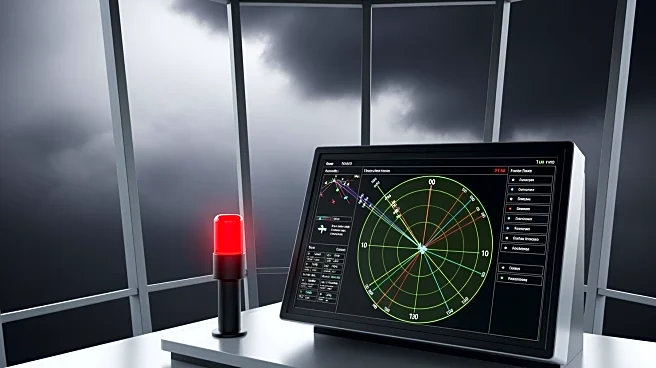What's Happening?
Iceland's air traffic controllers have announced a series of five work stoppages, starting Sunday night, which could significantly disrupt flights at Keflavík and Reykjavík airports. The strikes are a result of stalled negotiations between the Air Traffic
Controllers’ Association and the Confederation of Icelandic Employers over pay disputes. The controllers are demanding that their current pay scale and earned rights not be compromised. The first strike is scheduled from 10 p.m. to 3 a.m., affecting the approach areas of the airports, although emergency, medical, and Coast Guard flights will be exempt. Icelandair, which operates six of the ten flights scheduled during the first strike period, is expected to be heavily impacted.
Why It's Important?
The strike poses a significant threat to Iceland's aviation sector, particularly affecting Icelandair, which is already facing operational challenges. The airline's CEO, Bogi Nils Bogason, highlighted the potential for increased operational costs and disruptions, noting that Icelandair is not directly involved in the negotiations. The broader impact could extend to the tourism industry, a vital part of Iceland's economy, as flight disruptions may deter travelers. The situation underscores the importance of reaching a 'sensible agreement' between the controllers and employers to prevent further economic repercussions.
What's Next?
If no agreement is reached, the planned strikes could lead to widespread delays and cancellations, affecting not only Icelandair but also nearly 30 other airlines using the airports. The ongoing negotiations are crucial, as the airline's contracts with pilots and cabin crew are also pending renewal. The outcome of these talks could set a precedent for future labor negotiations in Iceland's aviation industry.
















